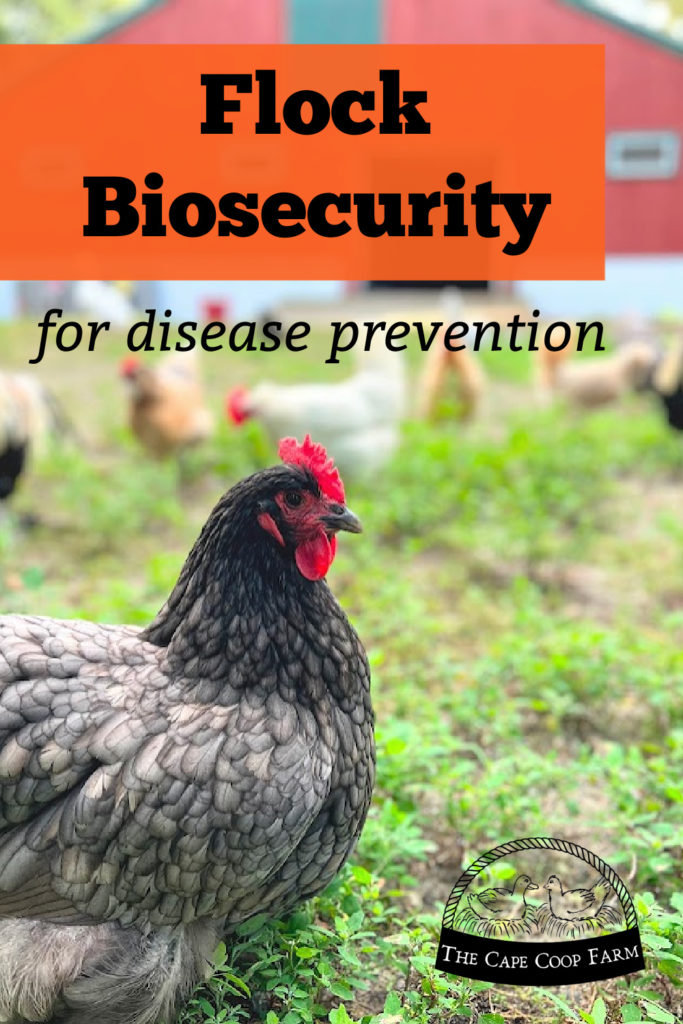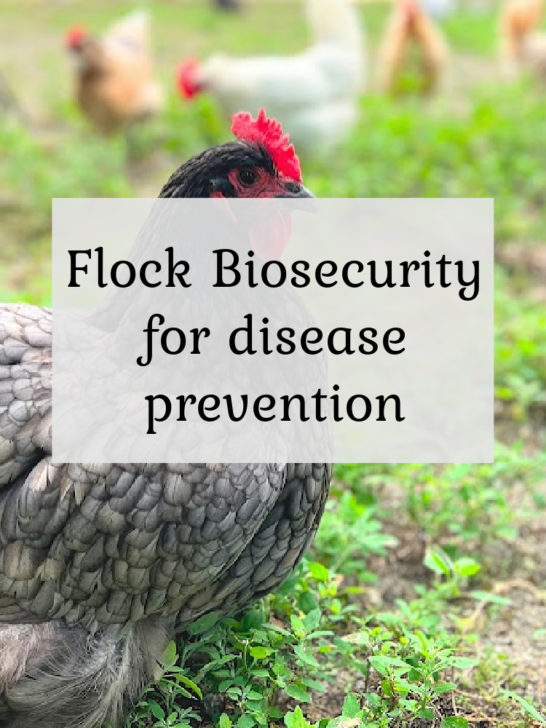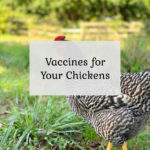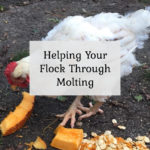---------------------------------------------------------
You’ve built strong fences and a sturdy coop to address your chicken’s physical security, but have you taken the steps to implement flock biosecurity for disease prevention? This is an important step for keeping your chickens healthy.
What is biosecurity?
Chickens don’t just need protection from physical threats, there are plenty of invisible threats in the form of pathogens. Practicing good biosecurity involves taking steps to keep your farm as clean as possible and preventing disease transmission.
In an ideal world, you would implement every measure in this article. But in reality, we don’t live in an ideal world. There are some measures you have little or no control over, and some simply won’t work for your farm or lifestyle. You need to decide what risk level you are comfortable with. Any steps you can take to minimize disease introduction & transmission are steps in the right direction.
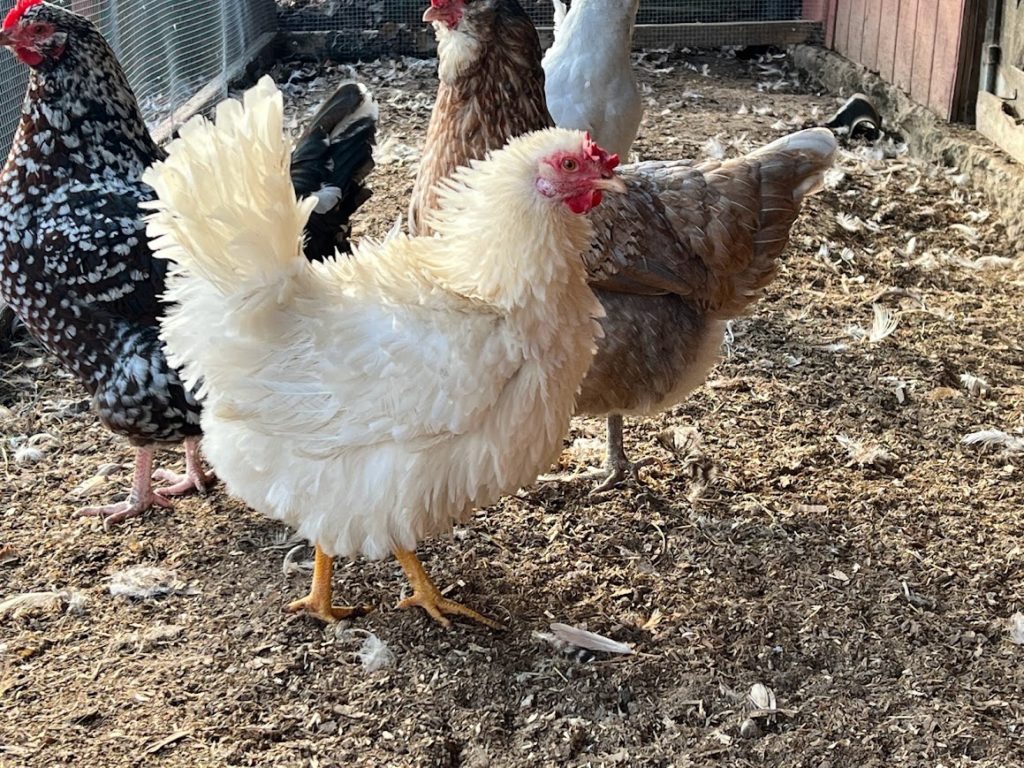
Biosecurity if you are still in the planning phase of your farm
You can take a couple of biosecurity measures while still in the planning phase of your farm.
- Situate your coop & run away from busy streets. Passerbys can unknowingly introduce germs on their shoes or tires.
- Don’t locate your flock near other poultry farms, live animal markets, or feed stores that sell birds. Nearby sites with poultry run the risk of a diseased chicken escaping and making their way to your farm.
- Don’t locate your flock near bodies of water that attract wild waterfowl.
Bringing outside pathogens to your farm
The biggest biosecurity risk to your flock is from disease being inadvertently brought back to your farm. There are dozens of ways pathogens can be transmitted from outside sources.
Keep it clean
- Disinfect any used equipment you bring onto the farm. This includes chicken-specific items like feeders or waterers, but also management tools like shovels or rakes.
- Give thought to your footwear. Anyone walking into your chicken area has the potential to track in disease. You could pick it up on your shoes after walking in the feed store where other chicken keepers have walked. Germs could be picked up on your shoes after visiting another farm, auction, or poultry show. A fellow chicken keeper visiting you could bring disease on their shoes. Have specific “chicken yard” shoes that only are worn in the chicken area. You could also wear disposable shoe covers while tending or visiting your chickens. You can place disinfecting mats at the entrance of your chicken area if it is covered (like in a barn or shed). The mats have a plastic tray that will hold a disinfecting liquid and a plastic mat for scraping shoe bottoms.
- Change your clothes and wash them in hot water after returning from risky locations. This would include anywhere poultry can be found like auctions, other farms with poultry, or poultry shows.
Limit exposure to potentially sick birds
- Don’t go to risky locations during active avian outbreaks. If you have avian flu or Newcastle disease active in your area stay away from places where other poultry or poultry keepers are.
- Keep a closed flock. This means you don’t invite guests into your poultry area and you don’t introduce new birds unless they are baby chicks from a reputable hatchery. This is particularly important when there is active disease in your area, but isn’t a bad idea in general.
- Quarantine new birds. If you don’t keep a closed flock, you should always quarantine any new adult birds before introducing them to the flock. This means they are kept entirely separate – at least 30 feet away from your flock. Don’t share equipment between the new and old birds and wear shoe covers when dealing with the new birds. They should be kept separate for 3-4 weeks. During that time keep a close eye on the new birds for signs of illness.
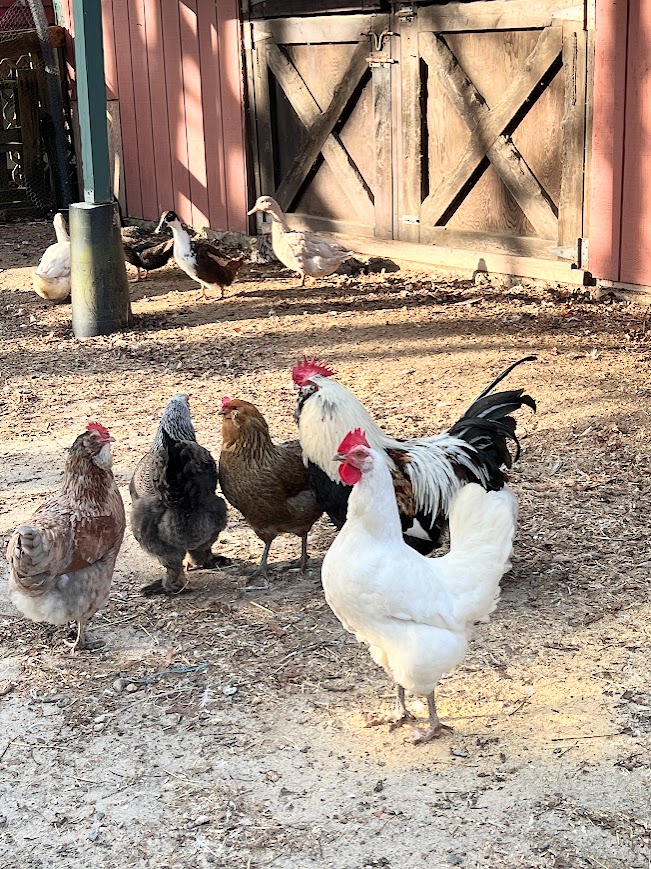
Controlling pathogens within your farm
It’s not only outside diseases you need to worry about. There are some steps you should take to manage germs within your farm.
- Take steps to control rodent populations in and around your chicken coop. click here for tips on rodent control
- Control the fly population on your farm. click here for tips on fly control
- Protect your flock from wild birds. Wild birds can be a major source of pathogen introduction. Even if the birds don’t stop at your farm to mingle with your flock, they could still deposit droppings just flying overhead. Keep wild birds out by keeping your chickens in a run with wire hardware cloth walls and a solid roof.
- Immediately quarantine sick birds. Keep any sick birds away from the rest of the flock and don’t share equipment or tools between them. Wear shoe covers and wash your hands well after caring for the sick bird.
- Have a necropsy done for any birds that die suddenly and without obvious cause. Your state extension office, state vet, or state animal control officer should be able to provide information on where you can get this done locally. If you can’t find local information you can contact the USDA at 1-866-536-7593. You can read the USDA’s online biosecurity pamphlet by clicking here
- Regularly clean and disinfect all chicken equipment & tools.
- Don’t keep bird feeders on your property, you don’t want to attract wild birds.
- Completely empty and disinfect your coop at least once per year
- Wash and sanitize your hands before and after handling chickens or doing chicken chores to avoid spreading germs between your flock & your family
